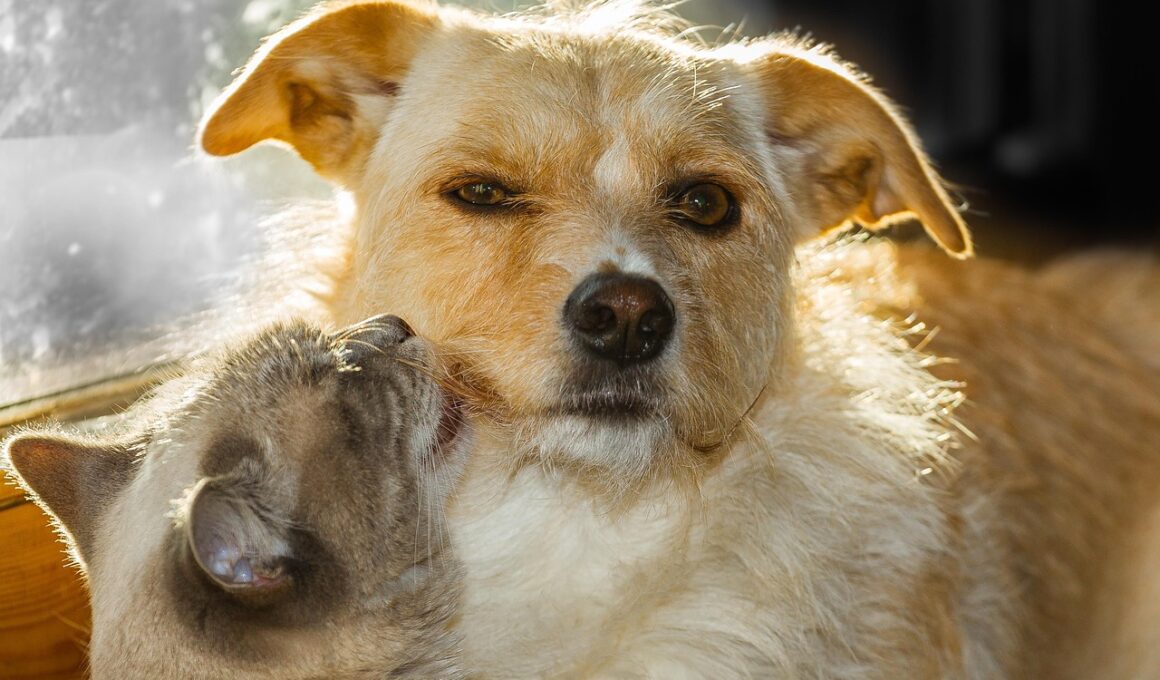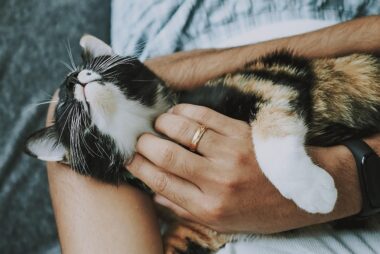How Courts View Cat Pet Trusts and Wills
In recent years, the legal landscape surrounding pets has evolved, particularly concerning cat trusts and wills. Courts are increasingly recognizing the significance of these legal instruments in ensuring that our feline friends receive proper care after their owners pass away. Pet trusts allow owners to allocate funds specifically for the care of their cats, outlining how the funds should be spent and naming a trustee to manage them. This legal acknowledgment is a positive stride for animal rights. The main objective of these trusts is to provide peace of mind, ensuring pets receive food, veterinary care, and companionship. However, it’s crucial to know how different jurisdictions treat these trusts. Some states have specific laws detailing pet trusts, while others refer to general trust laws, leading to inconsistencies. Courts take these stipulations seriously and can even enforce compliance with the specified terms. As awareness about pet trusts grows, more cases may arise, directly impacting how wills and trusts are drafted to ensure that cats are well cared for, emphasizing the importance of proper legal frameworks.
Pet trusts specifically designed for cats must include various critical elements to stand up in court. First, a clear definition of the pet must be present, identifying the cat by name or description. This ensures there is no ambiguity regarding which pet the trust covers. Moreover, the trust should state the intended caretaker, who will ensure the cat’s needs are met. Including a succession plan for if the primary caretaker can no longer fulfill their role is also advisable. Additionally, the document should specify the amount of money allocated for the cat’s care and outline permissible expenses. Courts value clarity and specificity to prevent legal disputes that may arise later on. Trusts lacking clear details may be contested or invalidated. Furthermore, pet owners may want to consider naming a backup trustee to manage funds should the primary trustee become unable to serve. Legal advice from a specialized attorney can help in preparing a robust pet trust, ensuring compliance with local laws and addressing any potential complications that may arise. In summary, being thorough in these documents is crucial to secure a cat’s future care.
When examining how courts handle cat wills, it becomes evident how varying laws treat animal inheritance. Traditionally, pets are considered personal property, hence, they cannot inherit in the same manner as humans. This means cats cannot be named as beneficiaries in wills directly. Nevertheless, pet owners can provide for their cats through a combination of a will and a fund or pet trust. This allows courts to enforce the wishes of the deceased while prioritizing the cat’s needs. Courts typically view provisions for pets favorably when the intentions are clear. They will uphold the owner’s wishes as long as they are clearly stated and can be implemented. However, these provisions must comply with existing laws regarding property inheritance. For instance, any funds directed to the care of a cat should be allocated in a manner consistent with the law. Legal documents that include pet provisions must adhere to formal requirements to ensure that they are enforceable. As more cases arise, we may see a shift in how courts view pet provisions in wills and trusts, pushing for clearer legislation surrounding pet care.
Challenges in Enforcing Cat Trusts
Enforcing cat trusts can sometimes present several challenges. One significant issue arises when trusted caregivers do not comply with the terms set out in the trust. In such cases, beneficiaries or those concerned may need to bring the issue before the court. Courts often need substantial evidence to take legal action against a trustee or caregiver. This evidence must prove misuse or mismanagement of the funds allocated in the trust. It’s essential that trusts are explicit in their terms and provide clear guidelines for caretakers. Courts may also question the feasibility of pet trusts if they perceive the allocated funds as excessive or unreasonable. Trustees are legally obligated to manage the funds responsibly, focusing solely on the care and well-being of the pet. If they deviate from these duties, legal recourse may become necessary. Additionally, state laws may impact enforcement. Regions with robust statutes supporting pet trusts might resolve disputes more quickly than others. It is advisable for pet owners to familiarize themselves with their jurisdiction’s specific requirements for cat trusts to better navigate potential hurdles in enforcement.
Legal Precedents Involving Cat Trusts
Various legal precedents have shaped how courts regard cat trusts. Several landmark cases set the foundation for recognizing and interpreting the validity of trusts designed for pets. In these cases, judges have emphasized the significance of animal welfare, advocating for the legal recognition of pets as sentient beings deserving of care. For example, in one significant ruling, a judge upheld a pet trust that outlined the care of a deceased individual’s cat, showcasing the court’s willingness to enforce provisions that prioritize pet care. These decisions illustrate a growing judicial acknowledgment that pets are not merely property but companions integral to their owners’ lives. Moreover, such rulings have garnered substantial media attention, furthering public awareness about pet trusts. With more individuals declaring their intentions to provide for their cats posthumously, additional cases are likely to emerge, influencing future legal interpretations. This trend showcases an evolving legal landscape that increasingly recognizes the importance of pet care in estate planning. As a result, individuals considering pet trusts may find reassurance in the growing body of case law supporting these legal mechanisms.
To maximize the effectiveness of a cat trust or will, pet owners should consult with an attorney experienced in estate planning with a focus on pet care. Legal professionals can provide essential guidance on drafting uncompromising documents that adhere to local laws, ensuring all specified provisions are enforceable. Engaging an attorney also allows pet owners to explore creative options for ensuring proper care for their cats. This may include developing strategies for fund management, recommending caretakers, and establishing detailed care instructions. An attorney can also help address potential issues with enforcement, suggesting ways to mitigate risks that can arise during and after a pet owner’s life. Furthermore, tailoring the trust to reflect the specific needs of the cat is crucial. Each pet has its unique requirements, and planners should consider any medical or special needs the cat may have. Involving a veterinarian in the planning process can additionally provide insights on appropriate care standards. Such comprehensive planning helps ensure that a cat will receive the best possible care after the owner’s passing, thereby providing peace of mind to the pet owner.
Looking towards the future, it is essential to consider how societal perceptions of pets might further influence cat trusts and wills. As attitudes shift to view pets as family members rather than possessions, there may be a greater demand for legal services focused on animal welfare. This evolution in mindset has the potential to affect legislation surrounding pet trusts nationwide. Lawmakers may be more inclined to develop comprehensive laws that support pet welfare after their owners’ demise. Increased public interest in responsibly caring for pets could further enhance the legal significance of trusts in estate planning. In turn, attorneys may start to educate clients about including pets in their wills and trusts even more extensively. Community awareness campaigns highlighting the importance of providing for pets could also encourage individuals to take proactive steps in planning. The increase in estate planning concerning pet care will undoubtedly pave the way for clearer legal guidelines in the future. This trajectory will not only ensure better care for pets but will also reinforce the bond between owners and their beloved feline companions.
As we have reviewed, establishing a cat trust or will is a vital step in ensuring their welfare and care after a pet owner’s passing. Legal mechanisms such as trusts and wills serve to protect the interests of pets in a financial and caring context. Familiarizing oneself with the rules governing these documents is imperative. Pet owners must proceed with caution when navigating this process to ensure their wishes are honored legally. Engaging with legal professionals knowledgeable in pet law may ease the complexities involved. Such partnerships allow for the end goals of ensuring proper care for their feline friends. While challenges in enforcement exist, they can often be managed through thorough planning and understanding of the relevant laws. Pet trusts are steadily gaining acceptance and importance in courts, reflecting changing perceptions regarding the role of animals in our lives. This trend speaks to an evolving acknowledgment of pets as more than mere possessions. By examining the legal landscape of cat trusts and wills, we underscore the invaluable bond between owners and their cats, promoting a lasting commitment to their care, even beyond life.





